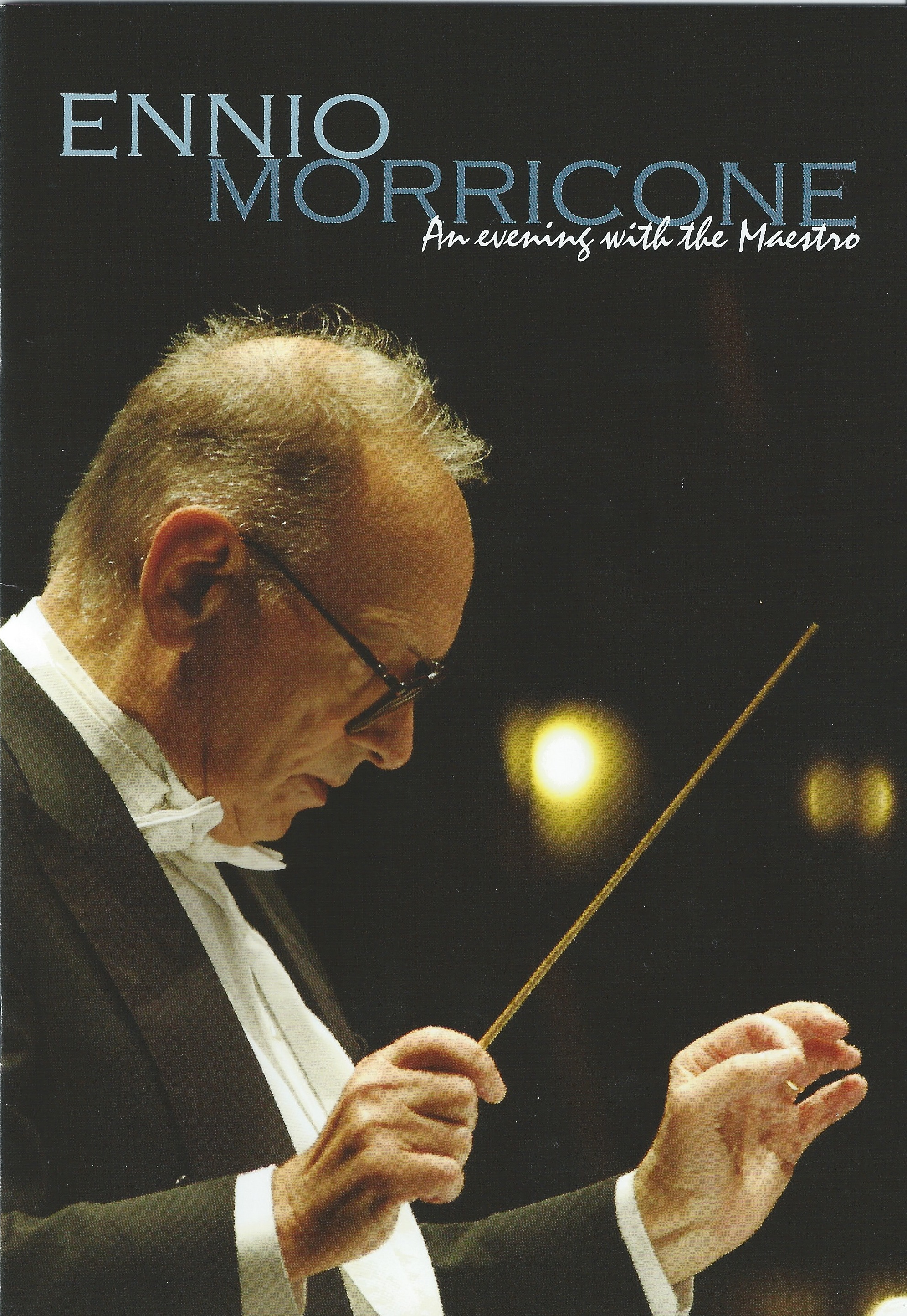Treasured Appearances: Ennio Morricone An Evening with the Maestro
The legendary and iconic Ennio Morricone, a composer of over 400 film scores, gave his first ever performance in Australia as part of the Perth International Arts Festival on February 26th, 2012. Producer Malcolm C. Cooke originally planned to have the Maestro perform outdoors in the Swan Valley, a wine producing regional suburb but decided he'd sell more tickets if the venue was moved closer to the city, indoors, at the Burswood Entertainment Complex. This proved to be a wise choice since the large capacity auditorium was a sellout. The only slight drawback was the overall sound. Dull acoustics in the "non-classical" auditorium required amplification which seemed to strain under the combined strength of the 100 piece Western Australia Youth Orchestra, the 100 strong Perth Festival Morricone Chorus not to mention Morricone's travelling "Italian" musicians.
Being a long time classical concert goer in Los Angeles, I was concerned about the non-professional Youth Orchestra performing what is for myself a most cherished programme of motion picture music. My worries were quickly set aside, however, when the orchestra belted out the main titles to The Untouchables, the night's dynamic opener. In fact, the inspired playing continued throughout this fabulous concert, the orchestra performing with such incredible gusto it easily compensated for the occasional split or sour note (only two or three) which admittedly appear at many a professional orchestral performance. Next up the Maestro conducted a suite from Once Upon a Time in America which was sublime, especially the "Poverty" theme. This melody was most memorably heard in the film when the elderly Robert De Niro character "Noodles" calls from a phone booth to a diner across the street run by his longtime friend whom he hasn't seen in decades. The Once Upon a Time in America music seamlessly segued into the gorgeous theme from The Legend of 1900 which built to a thundering orchestral climax. Afterward Mr. Morricone took a few bows to enthusiastic applause and then began to conduct a segment called "Scattered Sheets", a medley of scores to Italian films mostly unknown outside of Italy. 1969's H2S began this segment followed by The Sicilian Clan, then Love Circle (featuring the Maestro's traveling pianist Ludovico Fulci), concluding with one of the concert's highlights: Maddalena, an infectious upbeat theme combining classical and pop styles (not to mention Morricone's playful nonsensical sounds transcribed from voice to various orchestral instruments)... a piece that could only be identified as "uniquely Morricone." The last section before the Interval contained music from Sergio Leone directed Westerns, the scores which made Ennio Morricone world famous, and for this, his travelling Soprano Susanna Rigacci entered the stage to provide the wordless vocal accompaniment. The Good, The Bad and the Ugly striking main titles was first, featuring superb playing from clarinetist Christopher Dragon and traveling electric guitarist Rocco Zifarelli. The lovely "Jill's America" theme from Once Upon a Time in the West followed (heard in the film as the Claudia Cardinale character is driven by carriage through the breathtaking Monument Valley). Here, Ms. Rigacci performed slightly flat, possibly because of having to hit and then sustain those impossibly high octaves with no warm up material. The quirky A Fistful of Dynamite was next, and finally a spectacular high-octane rendition of "Ecstasy of Gold" from The Good, The Bad and the Ugly with everyone: Choir, Soloist Giselle Gabriels on Cor Anglais, Soprano Rigacci and Orchestra perfectly firing on all cylinders.
After the Interval the Maestro led the orchestra in a medley of "Social Cinema" beginning with the militaristic Battle of Algiers, one of cinema's greatest achievements, then the unforgettable theme from the Academy Award winning (1971's Best Foreign Language Film) Investigation of a Citizen Above Suspicion, followed by 1995's Sostiene Pereira, then La Classe Operaia va in Paradiso, the sad but beautiful Casualties of War and finally "Abolisson" from Queimada (Burn). The next segment contained themes from two popular Italian films Cinema Paradiso followed by another concert highlight: 2001's Academy Award Nominated Score Malena not typically found on the Maestro's concert repertoire. I first heard its achingly heartfelt melody when played by Yo Yo Ma on cello at the Academy Awards Ceremony and it sounded equally as splendid here, a real treat for the ears.
The "official" programme concluded with a suite from The Mission, another of Ennio Morricone's monumental accomplishments of composition and its performance here was splendid especially the Choir who performed with amazing intensity. I say "official" because after the tremendous applause and standing ovation from the audience, Maestro Morricone conducted three encores! Bravo!
A.G.
